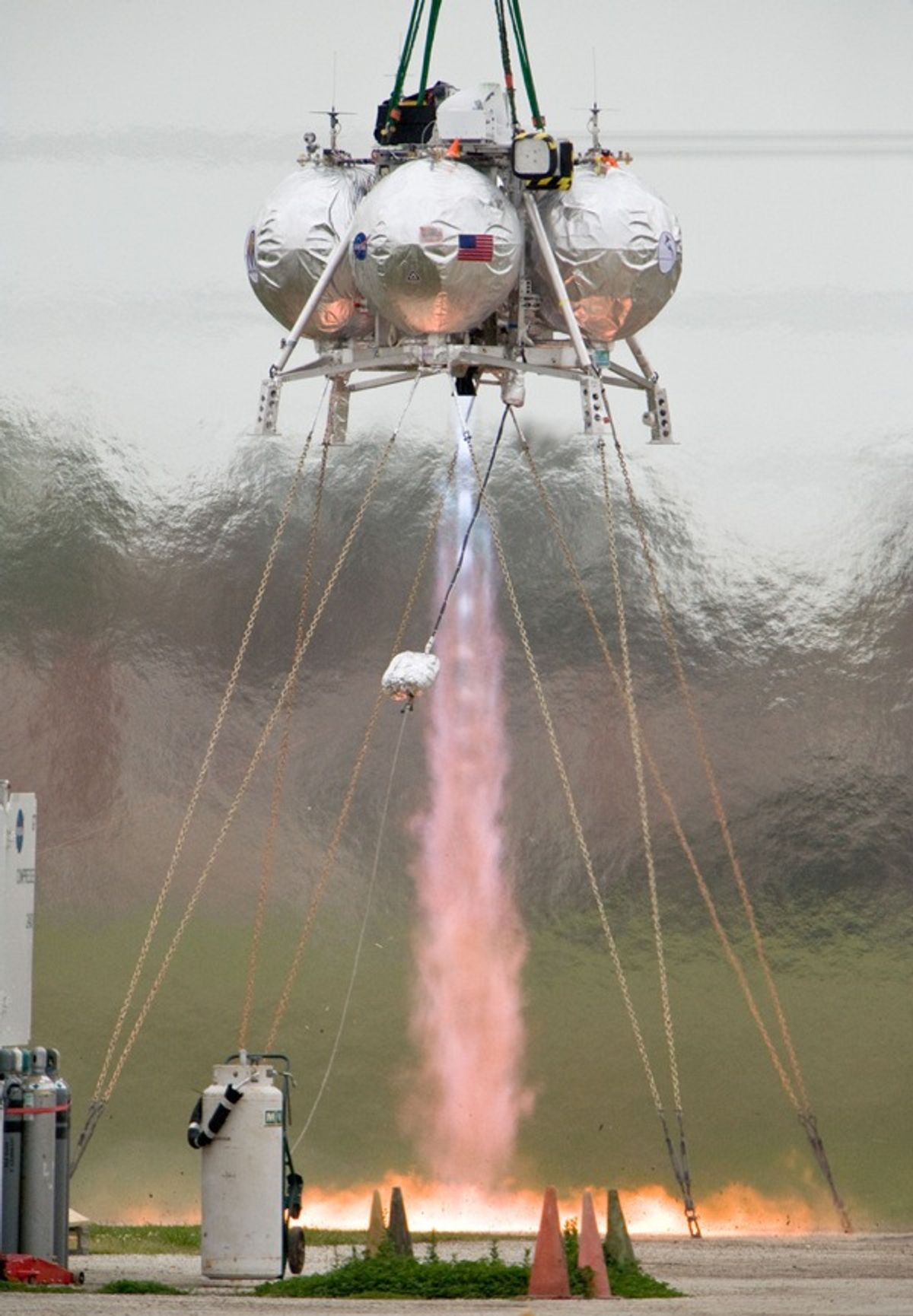Project Morpheus used to be called Project M, and it was an ambitious plan to send a Robonaut to the moon in under 1,000 days by embracing efficiency and cooperation while avoiding bureaucracy as much as possible. We've been huge, huge fans of the project ever since its manager, Matt Ondler, defended the idea to a seemingly uninterested NASA in an impassioned blog post that ended with "we will continue to push back the darkness until they chain the doors and take away our hacksaws."
We were completely sold, of course.
That was back in July of 2010, and since then Robonaut has ended up on the International Space Station, and Project M has (for better or worse) morphed into Project Morpheus, a vehicle designed to transport a robot (or anything else) to the lunar surface. Just two days ago, Morpheus underwent a test firing of its brand new engine.
This is the fifth tethered "hot fire" test, and the first of Morpheus version 1.5, with the new engine on board. The spacecraft is designed from the ground up to be totally integrated and autonomous, with the capability of transporting 500 kilograms (1,100 pounds) to the lunar surface. It'll have on-board guidance and control systems, and should be able to make more or less the entire trip autonomously, including the final lunar descent and landing.
Instead of using liquid hydrogen as a propellant, it uses much cheaper and safer methane, which has the potential to be farmed from ice on the moon or Mars. And if that's too much trouble, the ISS dumps about half a ton of methane waste gas into space every year, which is enough to fill the Morpheus lander up entirely.
It's great to see this level of progress on Project Morpheus, but we still wish that NASA had taken the original philosophy behind Project M a bit more to heart. You don't need a giant budget or a massive organization to do good work: you just need a group of people willing to put in time, effort, and creativity to get things done. This is what the DIY robotics community is based on, and people have been able to do incredible things with a lot of dedication and a little money and nobody to tell them why it was impossible.
[ Project Morpheus ]
Evan Ackerman is a senior editor at IEEE Spectrum. Since 2007, he has written over 6,000 articles on robotics and technology. He has a degree in Martian geology and is excellent at playing bagpipes.




